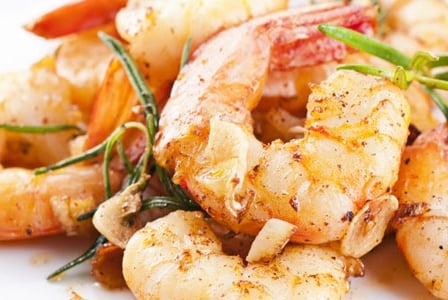
Its National Shrimp Day. Find out why choosing the right shrimp is so important – for your health and for the environment.
Today the US celebrates National Shrimp Day, a day dedicated to all the delicious ways we can enjoy this tasty—and healthy—crustacean.
Here at alive, we’d also like to pay homage to the shrimp, and share with you why choosing the right shrimp is so important—for your health and for the environment.
The dark side of the shrimp industry
Shrimp was once considered a delicacy and a treat; however, in recent years shrimp has become a cheap, common addition to many meals. If you’ve ever been to Las Vegas, you know a “mountain” of shrimp at the all-you-can-eat buffets is no exaggeration.
Unfortunately, the increased availability and thus production of shrimp has come at a cost, both to our health and to the environment.
Much of the shrimp sold in North America is imported from Asian and South American shrimp farms, where health and environmental regulations are incredibly lax. These shrimp are often contaminated with antibiotics, drugs, and chemicals—shrimp cocktail anyone?
Further, shrimp farming is costing the world its coastal mangrove forests, which are being cut down to make room for shrimp farms. Coastal mangrove forests provide nursery grounds, food, and shelter for nearly 75 percent of commercial aquatic fish species. Intact mangroves are also able to absorb the impact of tsunami surges and prevent people from being washed out to sea—the major cause of deaths on Boxing Day in 2004.
Choose wisely
Fortunately, there are a lot of shrimp varieties available to us that are not harmful to our health or the environment. Follow these guidelines when purchasing shrimp, and you can be confident that your choice is a sustainable and responsible one.
Read package labels
Any fish or fish products imported into Canada require clear labelling to identify the country of origin (look for the wording “Product of … ”). Avoid shrimp sourced from Mexico or Asian and South American countries.
Choose cold-water over warm-water species
Check the type of shrimp for their origin: cold-water species include northern, salad, pink, spot; warm-water species include jumbo, rock, tiger, white.
Buy certified sustainable
Look for shrimp and seafood that has been certified as sustainably caught or raised.
Cook some up
Once you’ve purchased your sustainable shrimp, enjoy them with one of these tested alive recipes.
- Sherried Shrimp with Romesco Sauce
- Caribbean Jerk Stir-fry
- Baked Coconut Shrimp with Apricot Dipping Sauce
- Wonton Soup
- Kung Pao Shrimp and Long Noodles

